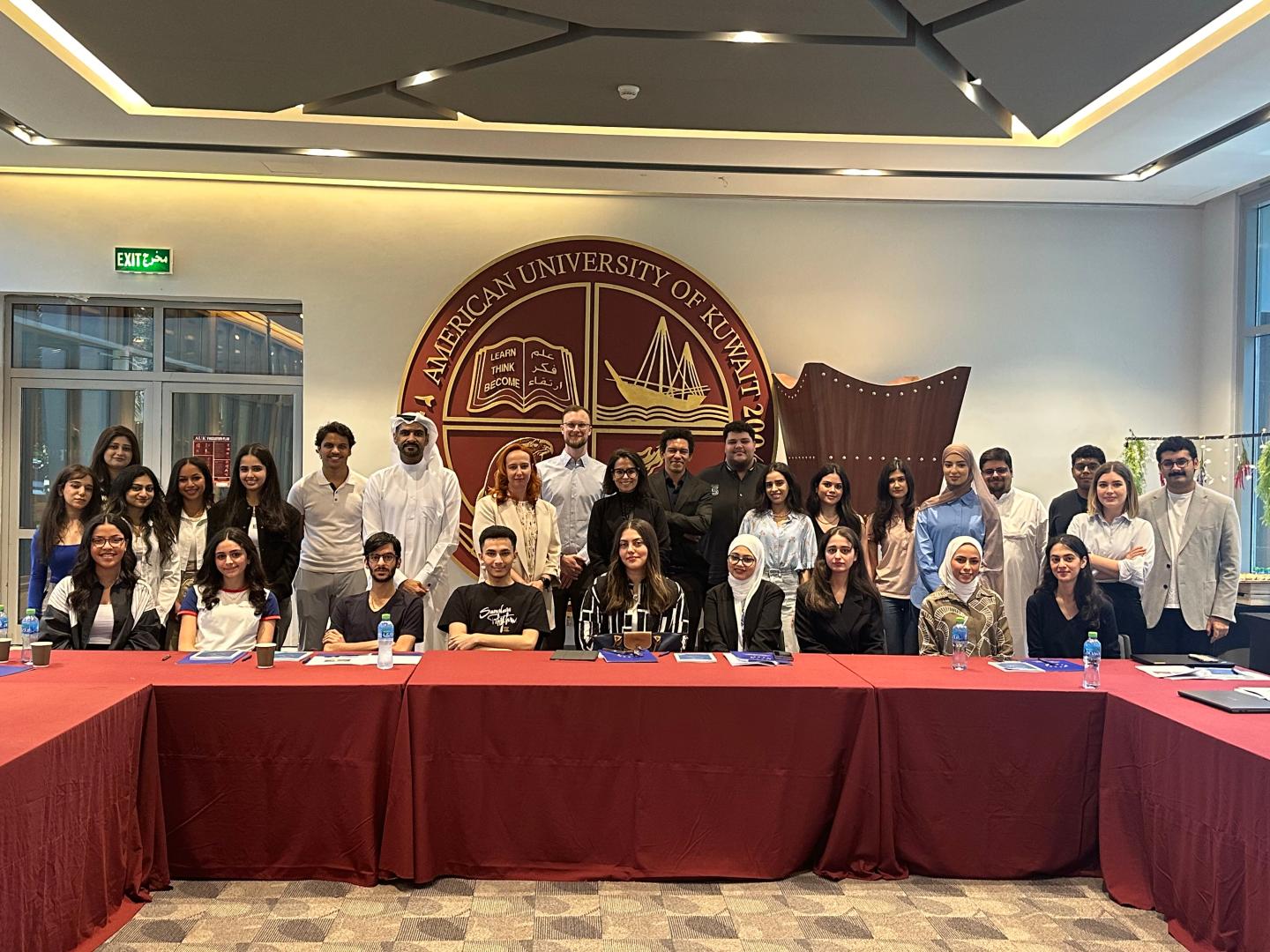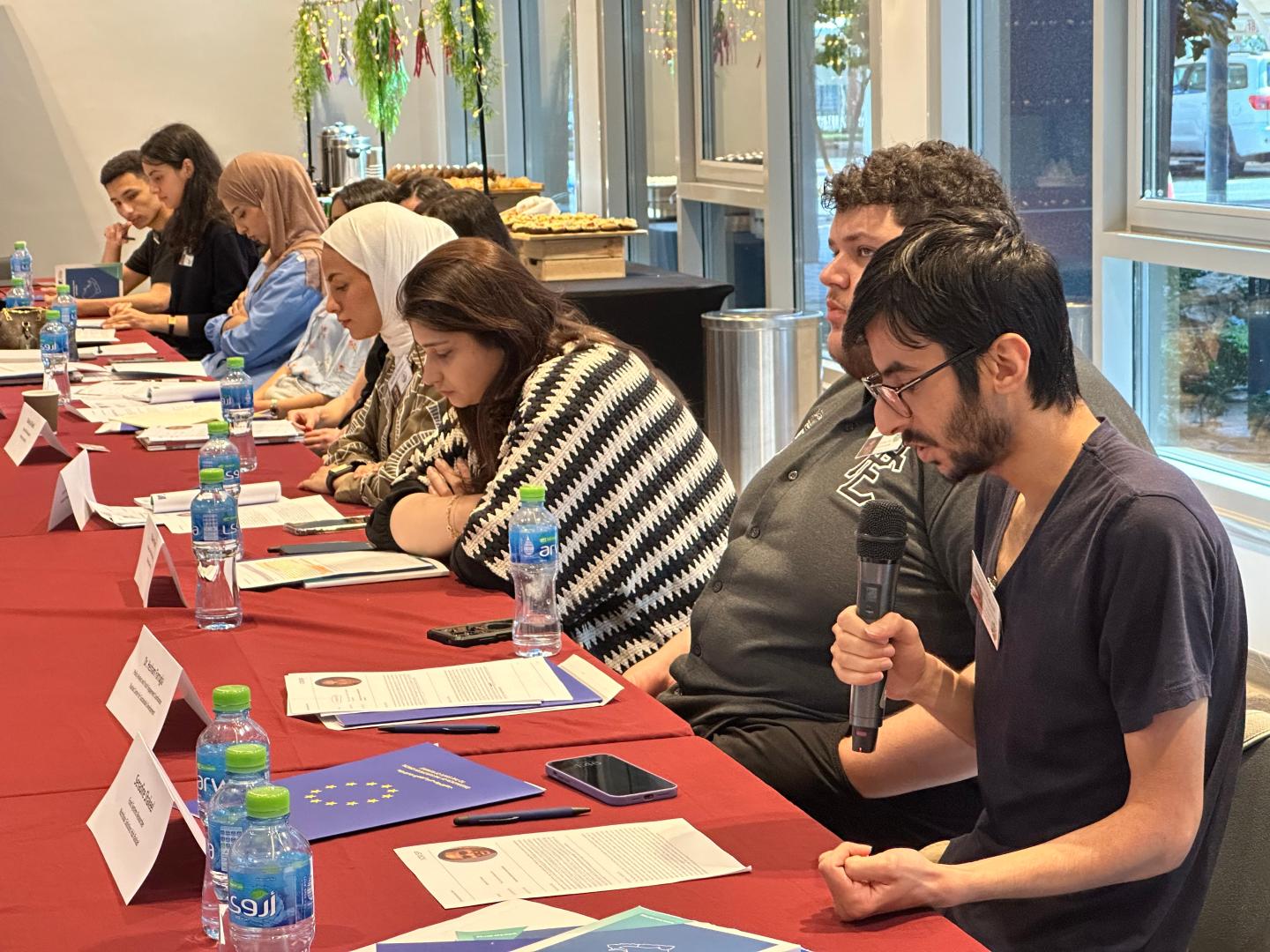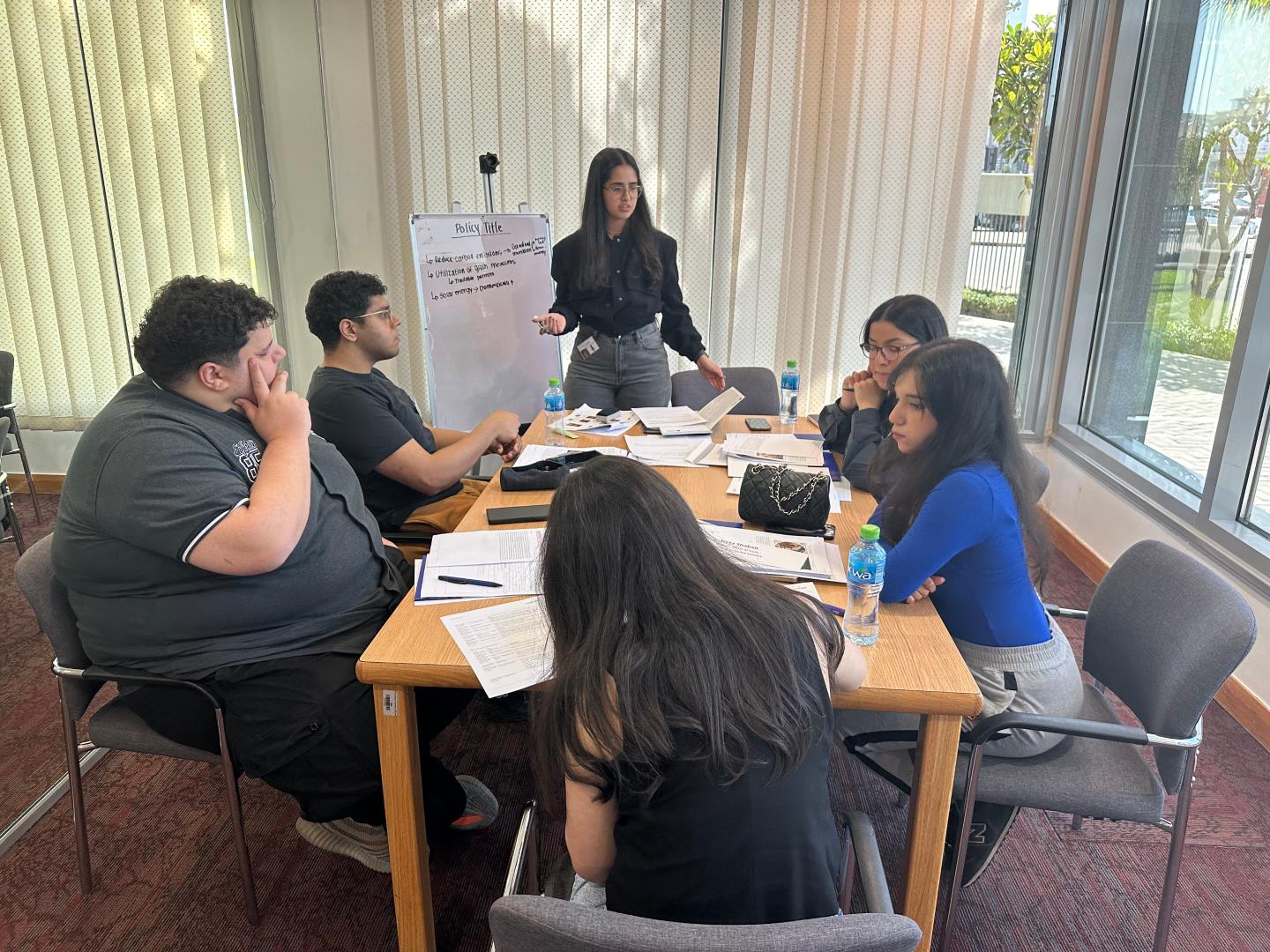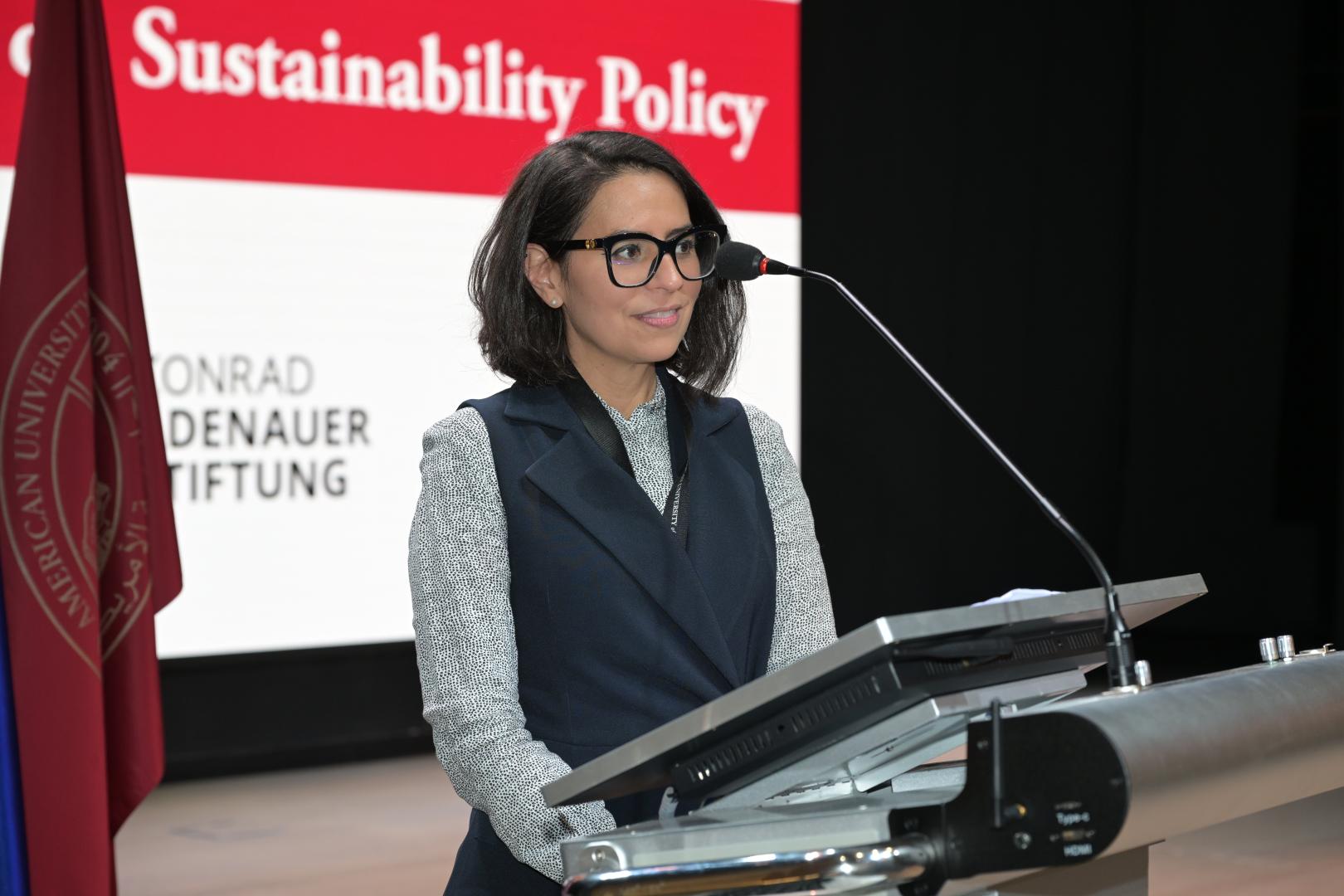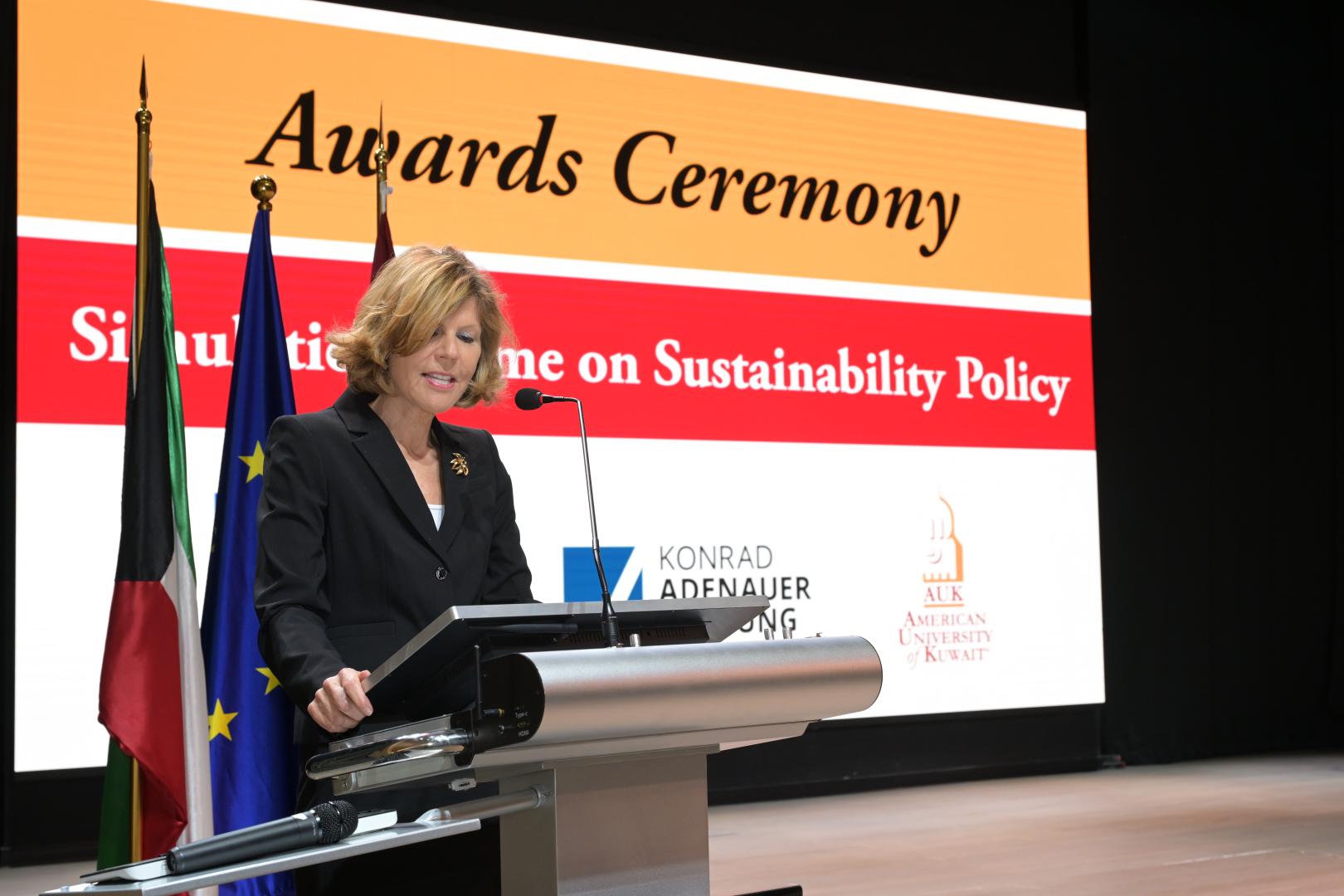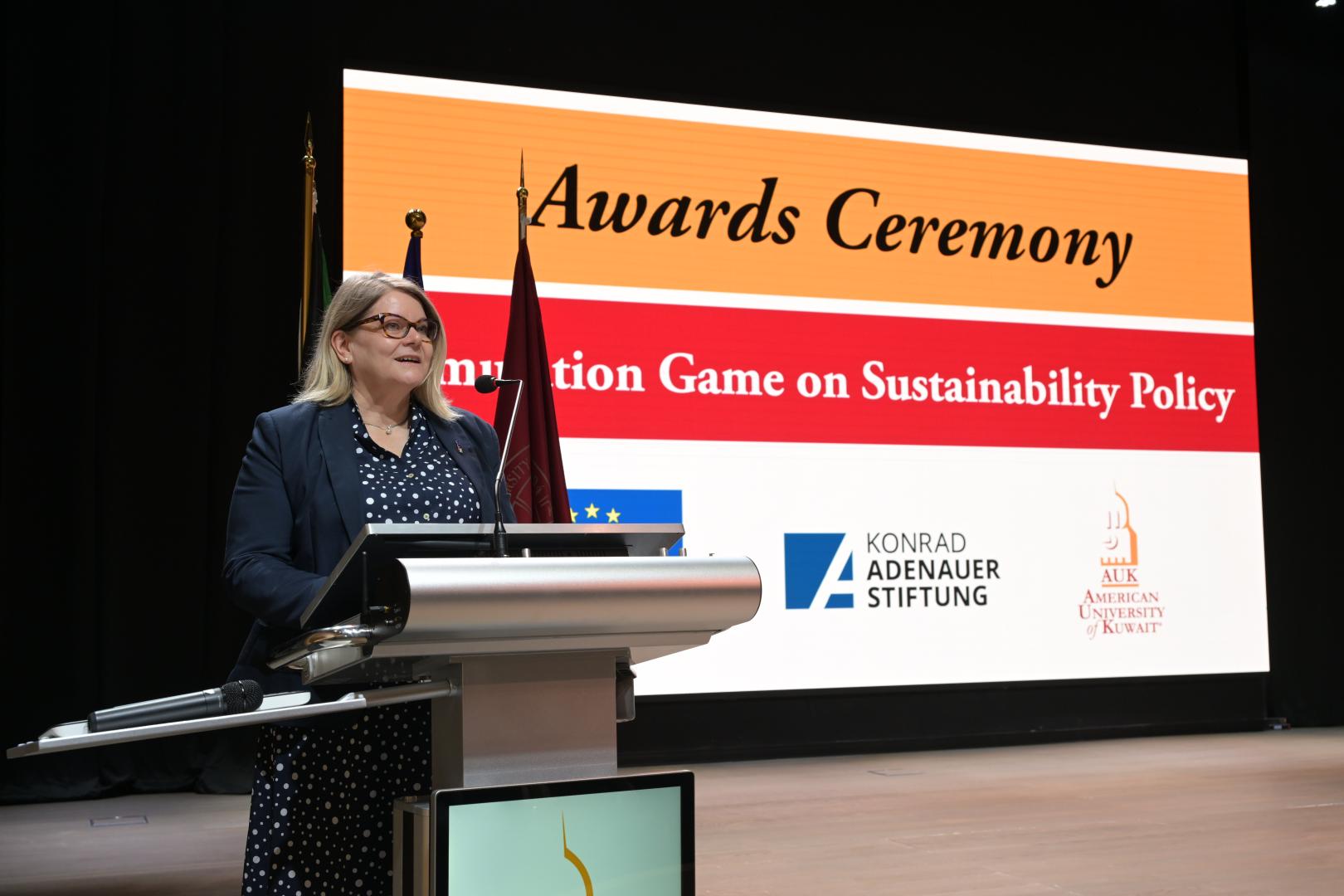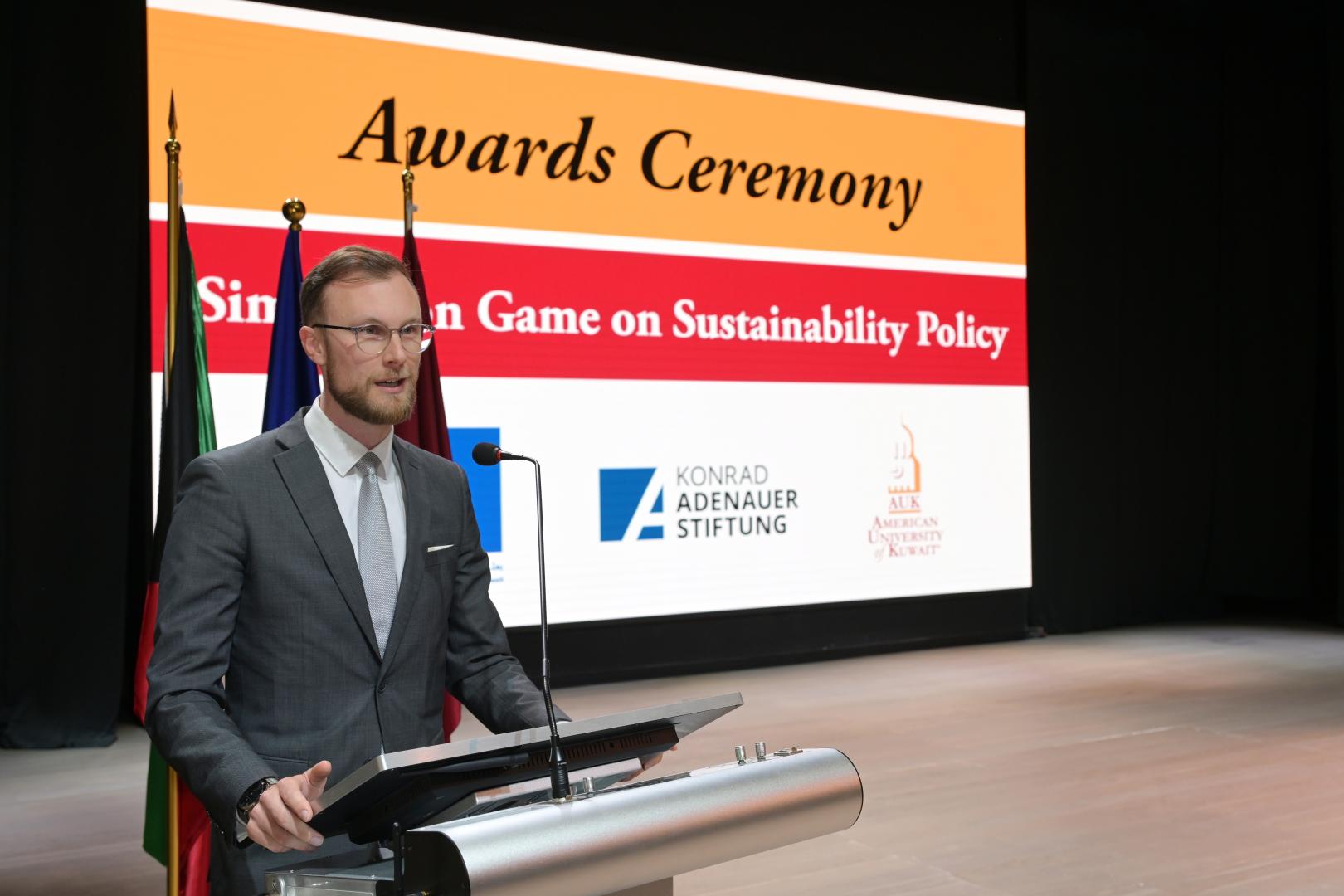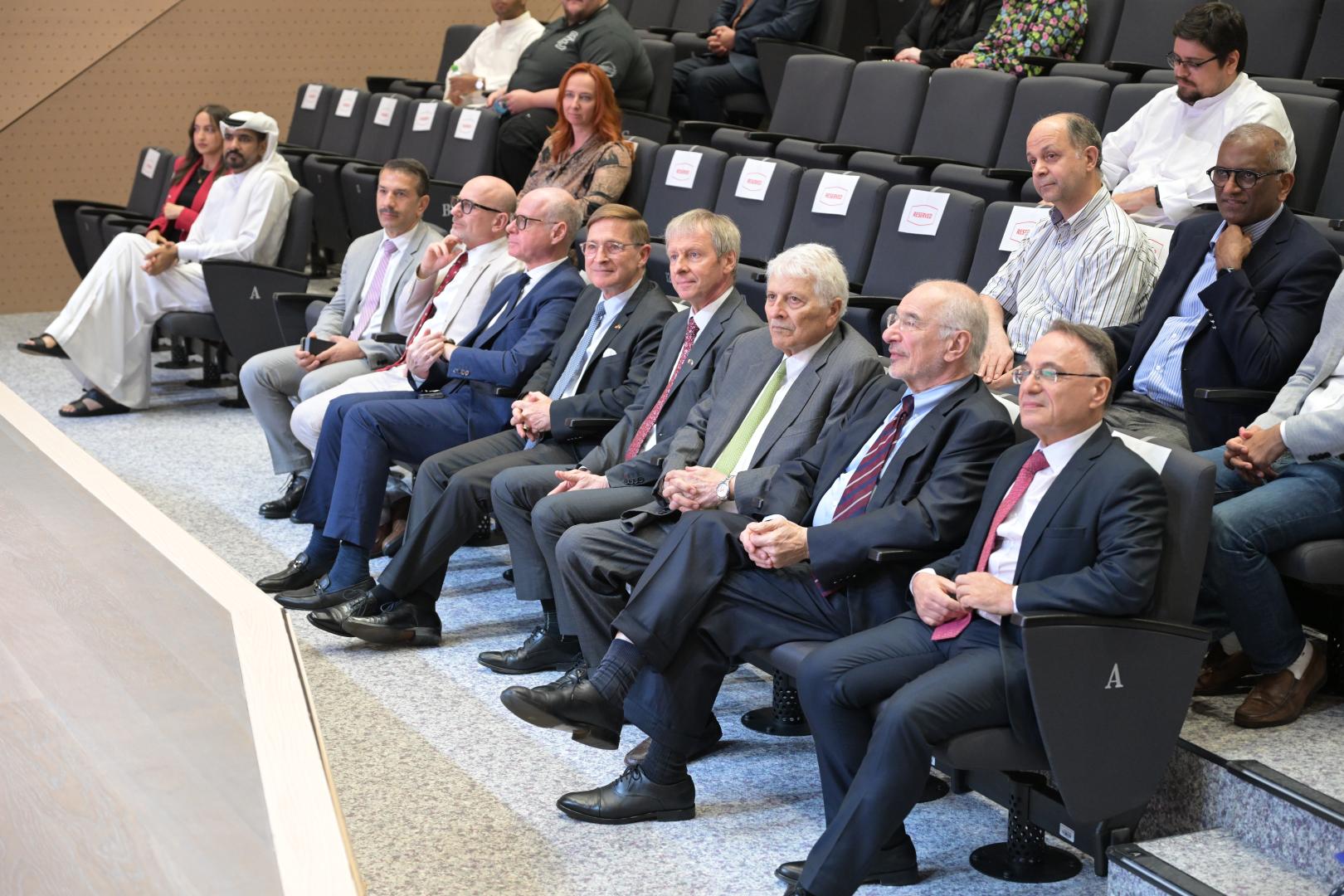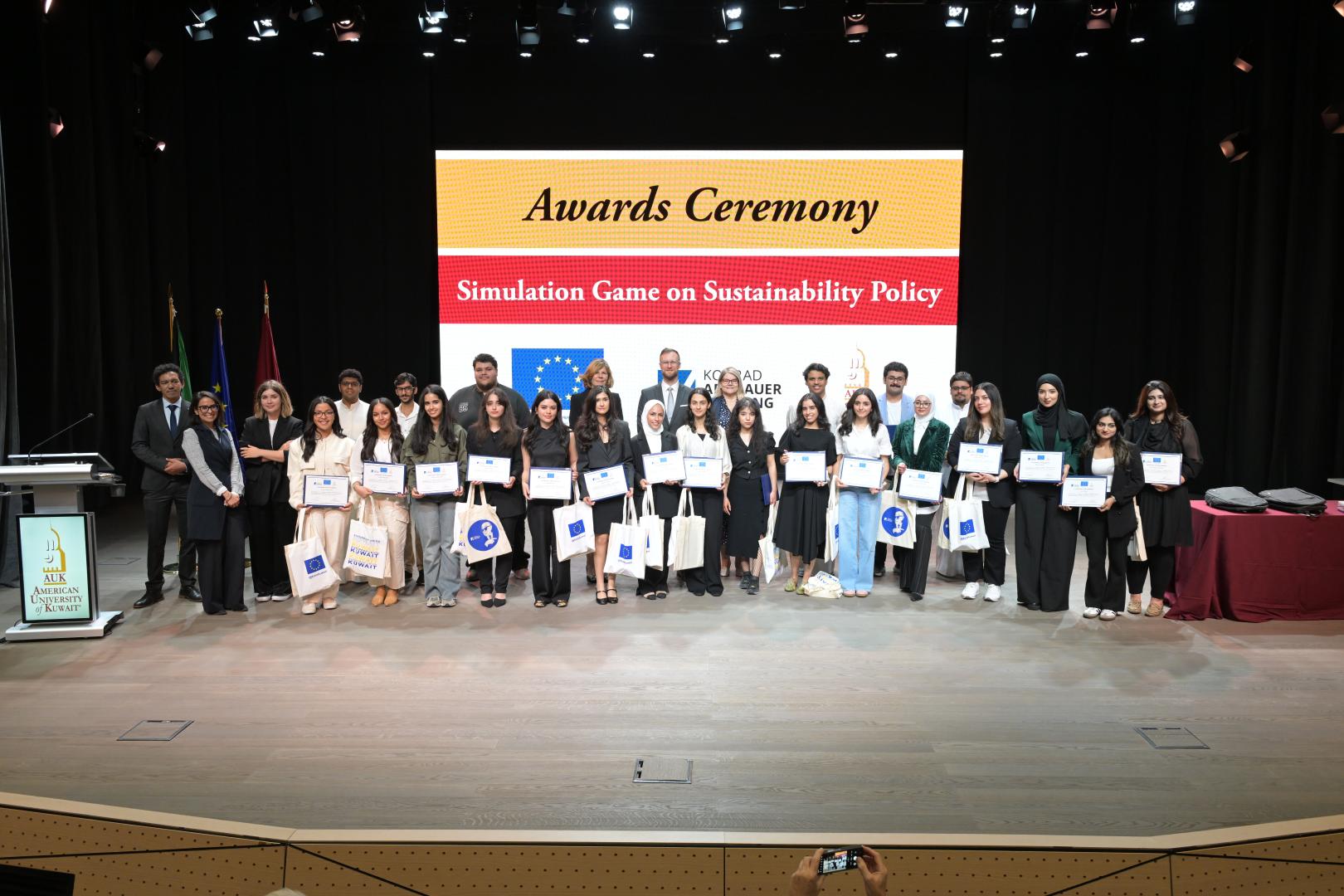Over one and a half days, thought-provoking deliberations and dynamic discussions were held to explore the effects of climate change and propose impactful policies to advance a more sustainable society. The simulation game on sustainability policy titled "Action for Climate (A4C)" was conducted by the Konrad-Adenauer-Stiftung's Regional Programme Gulf States in cooperation with the American University in Kuwait (AUK) and the Delegation of the European Union (EU) in Kuwait. CRISP - Crisis Simulation for Peace implemented and conducted the simulation game.
The simulation brought together 24 exemplary undergraduate students from AUK's diverse programmes, immersing them in the roles of influential stakeholders, including representatives from the government, civil society, and youth organisations. In the context of the simulation exercise, these stakeholders united at a fictitious climate conference to put forth a Climate Resilience Plan. The students worked interdependently across four committees addressing food security, sustainable resource management, community resilience, and energy transition. Participants developed their negotiation and presentation skills through immersive discussions and participatory scenario exercises while exploring innovative solutions to pressing environmental priorities.
The simulation game concluded with a closing ceremony, attended by EU ambassadors and representatives, AUK staff and students. The president of AUK, Dr Rawda Awwad, initiated the ceremony, highlighting the game's role in empowering students to think and act globally. The EU ambassador to Kuwait H.E. Anne Koistinen underscored the pivotal role of role of the EU spearheading climate action, both on the European continent and beyond. KAS Regional Programme Director Philipp Dienstbier emphasised the necessity of engaging youth in climate affairs, as the impacts of climate change will have an imminent effect on the young generation in the region.
Projects like A4C are an example of KAS' efforts to empower the region's youth to become tomorrow's climate leaders and decision-makers. By engaging students in hands-on experiences through policy development, negotiation, and partnership building within the context of the game, the valuable experiences gained from this simulation game will equip the youth to address the impact of climate change head-on. It will also foster innovative and sustainable solutions to benefit the region's future.



